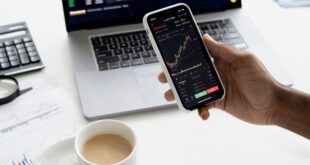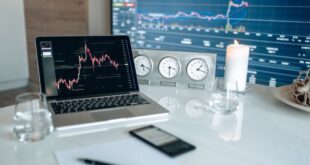The foreign exchange, or FX, market is the world’s largest and most liquid financial currency. In contrast to stock markets, which are centralized and run by exchanges, orders in the foreign currency market are matched between dealers directly.
Because until recently the forex market was only open to Hedge Funds and not accessible to retail traders like us, foreign exchange (Forex) trading has not been popular with retail traders/investors (traders takes shorter term positions than investors). Forex trading has only been accessible to retail traders in recent years. When compared to other forms of investment, stock trading has provided individual investors with a more stable and stabler market for a longer period of time. Recent developments in computer and trading technology have made it possible for retail traders to engage in stock and currency exchange transactions from practically anywhere in the globe with an internet connection, and at cheap commission rates. The accessibility and cheap commission fees have greatly improved the winning potential of retail traders in the stock and currency markets. As a trader, what is the preferable choice between the two? These are the parallels between stock trading and currency trading for the average investor:
The Instrument’s Characteristics
In forex trading, the currencies themselves are traded, whereas in stock trading, shares in companies are purchased and sold. Stocks are shares of a corporation that are bought and sold on the trading market. The global stock market is quite diverse. The reasons that cause a stock’s price to rise or fall are numerous. If you want to know more about what influences stock prices, see my post in the under stock area. Trading foreign exchange, or Forex, entails making purchases and sales of currency pairings. A trade involves the purchase and subsequent sale of one country’s currency in currency for another. In this sense, the word “trade” is appropriate. Traders make their money when they anticipate an increase in the value of the currency they purchase relative to the currency they sell. An investor in foreign exchange (Forex) is essentially making a wager on the economic future (or at least the monetary policy) of one country versus another.
Dimensions of the Market and Its Flowing Capitalization
The foreign exchange market (Forex or FX) is much bigger than any other market in the world. It is far more massive than the stock markets, with daily transactions of more over US$4 trillion. Contrast this with the hundreds of equities available on the stock markets and the handful of currency pairings available on the foreign exchange market. As a result, large players are less able to artificially inflate or deflate currency trading rates in the forex trading than they are in the stock market. Due to the enormous volume of the forex market, currency pairings are more liquid than equities. It’s simple for a forex trader to join and leave the market. One of the challenges of trading stocks is that they tend to be less liquid than other asset classes, making it more difficult to get out of the market quickly in the event of a significant selloff. It’s especially bad news for investors in small-cap stocks. Foreign exchange (FX) traders also benefit from a wider price spread than stock traders do due to the market’s high liquidity.
A Disadvantage to Small Investors Caused by Trading Hours
The foreign exchange market is open around the clock, but the stock market in the United States is only open from 9:30 am to 4:00 pm Eastern Standard Time. The Forex market is open around the clock, but the stock market is only open from 9:30 a.m. to 4:00 p.m. EST. The fact that the stock markets are only open to market makers between pre-market (8:30am – 9:20am EST) and post-market (after the markets have closed) hours is a major disadvantage for ordinary stock dealers (4:30pm – 6:30pm EST). Most corporations, therefore, time the publication of financial figures that might significantly affect stock prices for the pre-market or post-market periods. This meant that retail traders like me could only track price changes between the specified times. Stop orders also wouldn’t be followed at this time. In contrast, those that trade in foreign exchange don’t have to deal with this major benefit. An trading in stocks could also dabble in foreign trading markets outside of regular trading hours.
Affordability
A trader needs a sizable quantity of money, usually in the tens of thousands, in order to participate in the stock market. However, a forex trader needs only a few hundred dollars to open an account and begin trading. This is due to the fact that more leverage is available in the currency trading. When compared to the stock market, the potential profits for a forex trader are far higher. The leverage offered by certain FX brokers may reach 400:1. With a leverage of 100:1, a US$1,000 deposit might make a purchase worth US$100,000. The borrowed funds will not incur any interest fees. The maximum leverage allowed when trading stocks on margin is 2 times. The margin trading interest rate is a cost to the trader.
Oversight in Data Sharing and Analytical Capabilities
It’s possible to invest in one of tens of thousands of stocks across countless markets. The trader’s job is to study a large number of stocks, then select the best handful. The market value of stocks fluctuates due to a wide variety of influences. Stock prices may be influenced by a wide variety of variables, not just the currency of exchange between currencies. For this reason, forex traders need only concern themselves with a small number of currency pairings. Furthermore, most information or news that might impact the value of a currency is released publicly, on time, and openly. Therefore, retail forex traders have a higher likelihood of success than stock dealers.
Conditions in the Stock Market, Bull or Bear
Investors in the foreign exchange market (Forex) are free to purchase or sell currency pairs in either direction. However, bear market conditions make it more difficult for stock traders to make a profit. The expenses and limitations of short selling stocks are higher. When the economy is performing well, known as a bull market, investors have a good opportunity to make money by purchasing stock and then selling it at a later date. However, savvy forex traders may trade regardless of market circumstances.
Currency fluctuations and trends
The value of major currencies fluctuates in response to national financial policies and macroeconomic factors. National financial policies and macro trends often persist for extended periods, be it in a monetary expansionary (rate-cutting) or monetary contractionary (rate-raising) cycle (rate hiking cycle). However, stock prices often rise and fall for a variety of reasons, many of which are micro and stock-specific. In light of this, forex traders are in a better position to capitalize on currency moves than stock traders.
In terms of oversight, the regulatory framework governing the main stock markets is often more robust than that governing the foreign exchange market. This distinction has important implications for the stock market, and traders should be aware of them. However, many trustworthy forex brokers are available. Finding a trustworthy forex broker is not hard if you use caution and do your homework.
Given the foregoing, it seems that foreign trading trading, rather than stock trading, is the best alternative for investors at this time of economic uncertainty. Stock trading may be a good opportunity during times of market strength. If you’re a stock trader, you should consider adding foreign trading (Forex) trading to your portfolio. A stock trader may take advantage of every chance that presents itself outside of stock trading hours through FX trading. Trading foreign exchange (Forex) might help stock traders improve their trading abilities and get a more comprehensive understanding of the global economy.
 Dekke Finance App Seputar berita aplikasi, trading dan keuangan
Dekke Finance App Seputar berita aplikasi, trading dan keuangan


